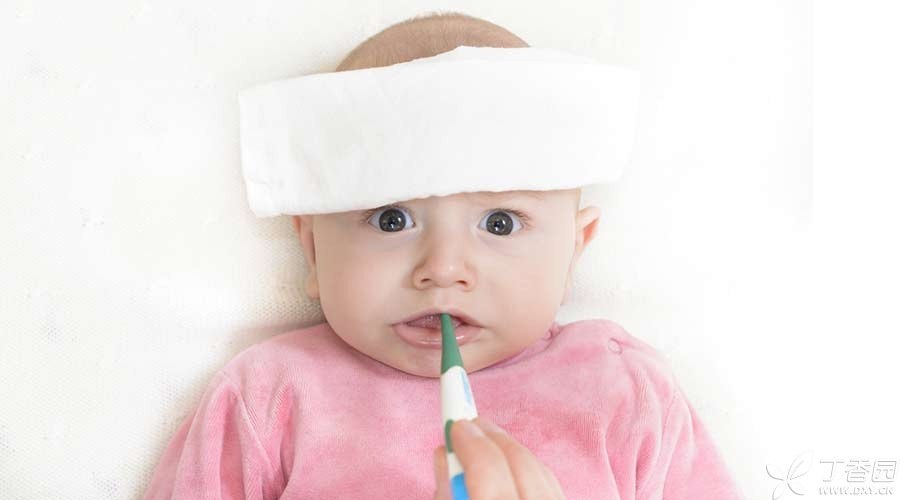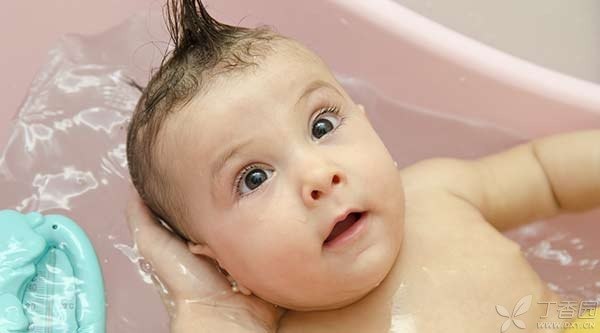
Parents are usually very nervous when their children are hot, especially worried about [burning their brains].
But first of all, parents may need to understand such a premise: fever is only a symptom, not a disease, but a defense mechanism of the body against infection.
Fever is usually caused by infection with germs. Generally speaking, fever itself is harmless, which shows that the immune system is fighting against germs. We usually use some methods to reduce fever, mainly to help fight against discomfort and diseases caused by fever and make children feel more comfortable.
For fever, it is more important to find out the cause. Next, let’s talk about the standard of fever, measurement methods, various countermeasures and the questions that parents often ask.
The standard of fever is what?
The body temperature of normal people will change with age, health status, activity level and daily time.
Babies tend to have higher body temperature than older children. During the day, a person’s body temperature is relatively high between afternoon and evening, while his body temperature is relatively low at midnight and early morning. How much clothes you wear also affects your body temperature.
The average normal body temperature of a person is 37 ℃, and the normal body temperature ranges from 36.4 ℃ to 37.5 ℃. Fever is defined as a body temperature higher than normal.
Rectal, ear or forehead temperature ≥ 38.0 ℃ is regarded as fever. Oral temperature ≥ 37.8 ℃ is regarded as fever. Axillary temperature ≥ 37.2 ℃ is regarded as fever.
How do you measure your body temperature?
The American Academy of Pediatrics does not recommend mercury thermometers for families to prevent accidental injuries and poisoning. It is recommended to use various electronic thermometers to measure children’s body temperature.

What are the manifestations of fever?
When children are hot, they will feel very hot, their faces are red, they sweat more than usual, and they are thirsty more than usual.
Fever caused by most diseases may have some accompanying symptoms, such as ear pain, sore throat, abdominal pain, rash, etc. These symptoms provide important clues for finding the cause of fever.
Some children will cry when they have fever, but this is generally not caused by fever itself. Frequent crying during fever may be due to pain, such as ear infection, urinary tract infection, sore throat, meningitis and other hidden causes.
Will fever burn out your brain?
General fever does not cause brain or nervous system damage. However, if the bacteria causing fever enter the brain at the same time, causing encephalitis and meningitis, it may cause nervous system damage.
Therefore, unless there is a high fever above 41 ℃, it is the germs entering the brain that [burn out the brain], not the symptom of fever.
How to take antipyretic?
Children with body temperature above 38.5 ℃ and fever accompanied by untimely can take antipyretic drugs.
It should be emphasized that antipyretic drugs can help lower body temperature and make children feel more comfortable, but they cannot prevent the onset of febrile convulsions.
Acetaminophen and ibuprofen are safe and effective antipyretic drugs that can relieve discomfort caused by fever and lower body temperature. Although both drugs are over-the-counter and are easily available, the following points should be reminded:
1. Pay attention to the age of application of drugs
For babies under 2 years old, please consult a doctor first.
Acetaminophen can be used for children over 3 months old, but attention should be paid to rational drug use and cannot be used in excess. Ibuprofen can only be used for children over 6 months old, but should not be taken if children frequently vomit or dehydrate. If children are not dehydrated, but cannot take antipyretic drugs orally, rectal suppository can be given.
2. Aspirin cannot be used to treat fever in children.
Side effects of aspirin include stomach discomfort, gastrointestinal bleeding, and severe [Wright’s syndrome], resulting in death.
STEP 3 Be sure to read the drug instructions first
Before giving any medicine to your child, make sure that the medicine and dosage are suitable for your child’s age and weight.
In addition, if your child is taking other drugs at the same time, be sure to check the composition of the drugs. If other drugs also contain acetaminophen or ibuprofen, consult a pediatrician to avoid liver and kidney damage caused by excessive antipyretic drugs.
4. Try to choose a single antipyretic drug
When families use antipyretic drugs to reduce fever, it is not recommended to use antipyretic drugs alternately, so as not to cause drug overdose due to parents’ wrong memory of drugs.

How to do physical cooling?
The purpose of antipyretic is to make children more comfortable. There are some physical cooling methods such as reducing clothes and turning on air conditioners, which can be used if they can make children more comfortable.
Warm water bath
Warm water bath cannot help the baby to reduce fever, but if the baby cannot take oral medicine, vomiting after taking medicine, showing great irritability or discomfort, many people will give the baby a warm water bath to make TA comfortable. However, if the baby does not like warm water bath, do not force it.
Alcohol wiping and ice application
Alcohol bath and ice bag application cannot be used to reduce fever and may cause chills. The baby’s skin is delicate and permeable. Alcohol may be absorbed into the blood through the skin, causing damage.
How to nurse at home?
Keep the children’s room cool and comfortable;
Wear light and light clothes for children;
Encourage children to replenish enough water, such as water, diluted fruit juice or oral rehydration salt solution;
Let children rest more and do not recommend strenuous exercise.
Consult a doctor before giving the child medicine.
When does what see a doctor?
Fever babies are under 3 months old;
In addition to fever, children are accompanied by mental changes such as lethargy and slow response.
Children do not eat, accompanied by rash or dyspnea;
The child has fever accompanied by dehydration symptoms, such as dry mouth, sunken anterior fontanelle or significantly reduced urine volume;
Fever lasts for more than 72 hours;
Fever with convulsion.
Editor: Yidan
Author: Chen Ying
